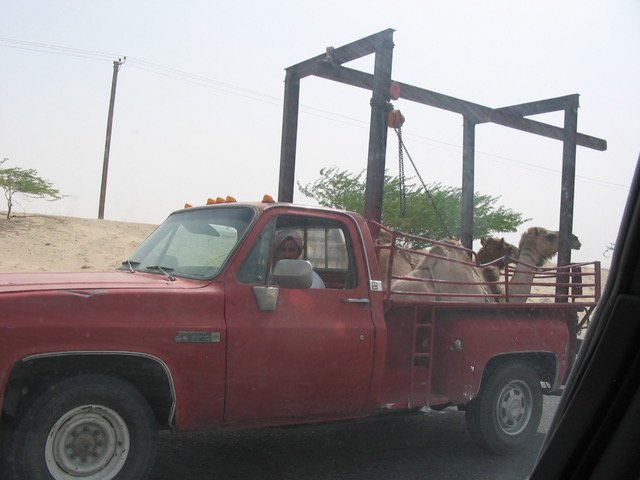Prematurely entering the world at 3 lbs. 14 oz., the waters of baptism instantaneously marked me out of fear that I wouldn't survive. This mark of fear around sin and hell would continue to trickle through my life as I grew up in the Roman Catholic faith of my parents and grandparents. And yet, I had such a strong attraction to Jesus and the saints. Religion and theology classes were a ping, like that of sonar whales, constantly pulling and calling me throughout grade school, high school, and college. God's fingerprints left marks on my life through those classes, mass, and the sacraments. But along the way, my child brain struggled with the messages of God's goodness and what I experienced through the practice of repentance and what I heard through the conversations about hell that circled in my life. I wanted to be good for God and, at the same time, received so many messages of my unworthiness both religiously and socially. There were no models or spaces for me to share my stories about God or ask questions about the confusing messages about God, faith, or how I experienced the world.
The retreats that I participated in high school and college were that same ping of God calling, like my attraction to religion classes. Through retreats, God brought me to story and community. I listened to God's story in others' lives. I got to learn more of the breadth and depth of God through community. Most importantly, I felt the power of God's love through the connection and belonging that developed through those communities. I was highly active in campus ministry, retreats, and community service in college. I participated in a community called Micah house (named for Micah 6:8 "What does the Lord require of you? To do justice, love mercy and walk humbly with your God") where we took theology and philosophy classes together, lived in community together, and served together in a poor community in St. Louis. Through all these experiences, the models of women in ministry were limited to being a sister, a campus minister, or a spiritual director. There were no other conversations about being a woman in ministry outside of sisters asking me to pursue religious life (which wasn't going to happen because I knew I wanted to have kids). So I pursued my speech-language pathology degree and continued my active participation in the church.
In the United Methodist Tradition, we often talk about God's prevenient grace - this grace that comes before our ability to know and see God's presence. God's prevenient grace swirled around my relationship and marriage to Matt. You see, Matt grew up United Methodist with his parents singing in the choir, his mom playing the organ, and his grandmother playing the piano. When we married, we decided to find the church that fit us. After a year of searching, we found a United Methodist Church in Katy, TX. This was where my understanding of God began to expand in a new way. I remember being in an "Intro to Methodism" class held by my pastor, trying to hold understanding for all these new words: "grace," "conferencing," and "Wesley quadrilateral," to name a few. I was ignorant of the Protestant Reformation but was eager to learn more. Excitement consumed me when I discovered that the United Methodist Church had a process to give lay members a voice and vote in what happened in their church. I was giddy about charge conference (yes, you read that right!). I remember thinking that the grass was greener on the Protestant side and unconsciously began throwing away my Roman Catholic heritage.
When we moved from Houston to Chicago, career and life ambitions took over, not to mention trying to parent two small children. We joined a United Methodist Church and struggled to find connection within this community. However, God continued expanding and stretching how we understood God and God's people. Matt and I led Financial Peace University classes which changed how we understood God and money. We also participated in discussions around human sexuality as our church community sought to become a reconciling church. Again prevenient grace showed up, God trying to plant a seed in my not-so-fertile soil. A few women from my church started to attend seminary; one told me that she could see me going to seminary. I completely dismissed it. Within a few short months from that conversation, we moved to Bartlesville, Oklahoma, with our now three kids in tow.
Due to burnout and family life, I decided to throw the towel in (to my speech therapy career). It was then that I must have cleared enough space to listen deep within myself and pray the prayer that God had been waiting patiently for many years to hear, "God, you can have my life. I don't know what to do with it." I went on a chaotic, messy journey from that prayer where God continued to stretch and grow my understanding of myself, God, and God's people. On that journey, I met some of my best friends, sat at the feet of some fantastic mentors, and went to seminary to continue expanding my learning. God dismantled myths that I created about myself. God destroyed the myth that I need to remain hidden and have nothing to say. I found myself excited to craft and preach sermons, lead classes, and, most importantly, use my voice to share prayer. God also taught me that there was value in my Roman Catholic faith which allowed me to rediscover the gems I threw away.
I graduated from Saint Paul School of Theology in 2020 and was incredibly grateful for my time of learning about God and church ministry. Although I had a lot of learning about God and some experiences with God in seminary, there was still something that felt incomplete. Spiritual direction had always been something that I wanted to do, but I couldn't figure out the timing. When my participation in the Academy of Spiritual Formation fell through due to the pandemic, I applied to HeartPaths Spirituality Centre (Oklahoma City) for spiritual direction training. It took God's gentle leading and a forty-year journey, but I found my home. My gifts and experience made sense through the language that came through spiritual direction. I graduate from my program on May 3rd this year. (Spiritual direction is better known in the Catholic tradition than the Protestant tradition. It is an opportunity for individuals to sit with another person (the director), listen to their life stories, and discover where God is present. Through spiritual direction, individuals learn more about how to discern how God is leading in their lives. Usually, an individual meets with a spiritual director once a month for an hour.)
I thought that was it. To offer people spaces where they can discern more about how God is working in their lives. It comes naturally and feels effortless. Box checked. Then the ping of God reverberated once again, this time through the voice of Emily Carroll. After sharing some messages from God that I couldn't make sense of, Emily said, "You know, we are hiring for a Children's Ministry position." With a look, I defiantly conveyed to her, "That's not for me." Again, I was dismissing God's planting of a seed; in the same way, I dismissed seed planting about seminary.
After wrestling with my fears, wrestling with God in prayer and wrestling in conversations with my people, I was convinced that I would regret not applying. Through all my wrestling, I could hear this whisper of God a bit better. God whispered to me (and I'm sure this is to you as well), "Don’t limit me in how I created you.” Don’t limit me in how I created you. So often, I have told God who I am and who I am not, and EVERY TIME God reframes it and tells me who I am. I am LOVE, just as you are LOVE. My journey with God is breaking all the boundaries and borders and walls I have created that prevent me from embracing who I am… LOVE.
I’m excited to be on the journey with you. I’m eager for the children of our church to expand our understanding of who God is and who we are as God’s people. So often, we miss that our God is creative and playful. I hope that our children (and God) will teach us to draw out that side of ourselves again. I desire our children to lead more in worship, learn about imaginative prayer and how to experience God, and create intergenerational relationships within our church community. I can’t wait to hear your God story and feel the vibrations of the Holy Spirit’s movement in, around, and through our community.
Colleen Runty is St. John UMC’s newly hired Children’s Ministry Director.







